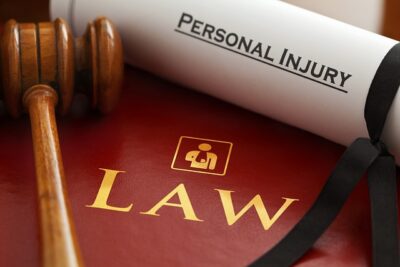Whether you’re hiring an attorney for a simple divorce case or an important criminal trial, a skilled lawyer can make a huge difference in your local court appearance.
To be a successful lawyer, you must have excellent communication skills. It includes oratory skills that allow you to explain your point clearly and concisely in front of the judge and opposing counsel.
Courtroom Etiquette
When a case is before a judge in sutherland court house, it’s essential to make a positive impression on the judge. It can affect the outcome of the case in a variety of ways.
Making a good first impression starts with basic courtroom etiquette. Be on time, dressed appropriately, and courteous to all parties.
Dressing appropriately means avoiding items that might be considered inappropriate, such as shorts and mini-dresses. You also want to avoid clothes that have revealing patterns. It includes things like hats and leggings.
A skilled attorney can help you choose the proper clothing for your court appearance. They can also advise you on etiquette and help you make the best impression possible.
Your attorney can also provide tips for addressing the judge. When speaking to them, it is a good idea to address the judge as “Your Honor” or something similar.
You can also show your respect by standing when a judge enters the courtroom. It is essential if you’re a defendant in a criminal case.
It is also essential to be honest when talking about these issues. Being vague or evasive can hurt your case.
A skilled trial attorney can help you be honest about these matters and avoid embarrassment for the court. They can also help you be respectful of the other parties in the case, including the prosecutor.
Judgment
Judgment is a legal decision that settles a dispute between two parties by determining their rights and liabilities. It can be monetary or non-monetary and is legally enforceable.
Your lawyer’s advocacy skills can also make a difference in your local court appearance. They may be able to influence the jury or judge’s verdict. They can also help you prepare for the trial.
They can conduct research for your case and review the evidence for possible issues that need to be addressed. This research often involves reading much material, such as court documents, witness testimony, contracts, and case law.
Attorneys need to read these materials with speed and accuracy and have confidence in the source of their information.
Your lawyer’s ability to speak to large audiences can be invaluable in a court appearance. They need to be able to eloquently express their thoughts and opinions and win over those listening.
Representation
In a local court, you want to ensure that your case is represented by someone with the experience, skill, and knowledge necessary to get you the best possible outcome.
Attorneys protect their client’s rights in various legal matters, from family law to criminal defense. Whether you need help with a divorce, child custody, or securing fair financial compensation after an accident, your attorney can dramatically affect your life.
In courtroom proceedings, representation can be anything from a well-crafted legal document to an effective trial strategy that will positively impact your case’s outcome. A skilled attorney can make all the difference in your local court appearance, regardless of how strong your case may be.
Communication
A skilled attorney will use the right communication techniques to convey information to you and your witnesses. It can include verbal, written, and visual means of sharing information.
It also includes presenting yourself and your case as professionally and respectfully as possible. This skill will allow you to build a good rapport with your opposing counsel and the judge or jury.
Inquisitiveness is one of the most essential traits for an excellent lawyer, as it can help you uncover hidden facts that might otherwise get overlooked. It also allows you to think on your feet and develop innovative solutions to challenging legal problems. For example, a good attorney might know how to decipher complex evidence in the form of fingerprints or DNA tests that might otherwise be difficult to read.









